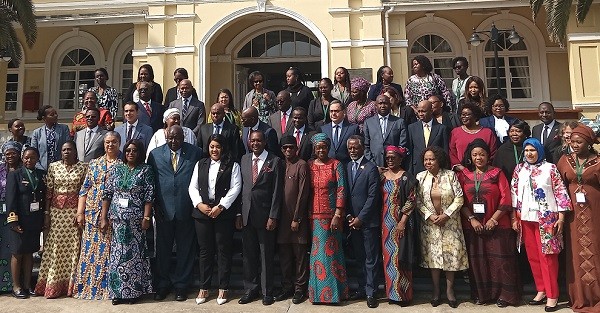
Shaanika urges AU Peace and Security Council to revive Africa’s stability

By Adolf Kaure.
The Deputy Executive Director for Multilateral Relations and Cooperation at the Ministry of International Relations and Cooperation, Jerobeam Shaanika stated that crisis of governance undermines confidence which breeds instability on the African continent.
Shaanika said this during the closing ceremony of the two-day African Union (AU) Peace and Security Council (PSC) induction workshop which concluded at Swakopmund on Tuesday.
The AU Peace and Security Council is the standing decision-making organ of the AU for the prevention, management, and resolution of conflicts since its inception 20 years ago.
“As long as we continue to have weak institutions without strengthening them, this will continue to perpetuate crisis in governance. Similarly, lack of unity only opens doors for interference from outside the continent,” he said emphasizing that the elected members of Council’s role is to ensure that they make Africa a shining beacon on a hill, free of conflict.
“That Africa only requires the necessary steps and political will to reach an Africa where the guns are silent, an Africa at peace with herself driven by its own people and respected in the international community.”
“That Africa is possible if our actions and steps as well as decisions we take are in line with the goals that we set to reach the Africa we want and desire.”
“Africa can only achieve its goals if it seizes opportunity while avoiding danger. Africa or Africans must have confidence in themselves to build a continent that our future generations will be proud of.”
“However, this can only be a reality if the decisions you make are implemented in the best interest of the African people,” said Shaanika.
The AU Peace and Security Council consists of 15 members.
The current members of the AU PSC, besides Namibia are Burundi, Cameroon, Congo, Djibouti, the Gambia, Ghana, Morocco, Nigeria, Senegal, South Africa, Tanzania, Tunisia, Uganda, and Zimbabwe of which the outgoing members are Burundi, Congo, Ghana, Senegal, South Africa, Tunisia and Zimbabwe.
The incoming members are Angola, Botswana, Cote D’Ivoire, Democratic Republic of Congo, Egypt, Equatorial Guinea, The Gambia, Sierra Leone, Tanzania, and Uganda.
With their work starting on 1 April, the Council will serve a term of two years.
The elected AU Peace and Security Council members. (Photograph by Adolf Kaure)










































